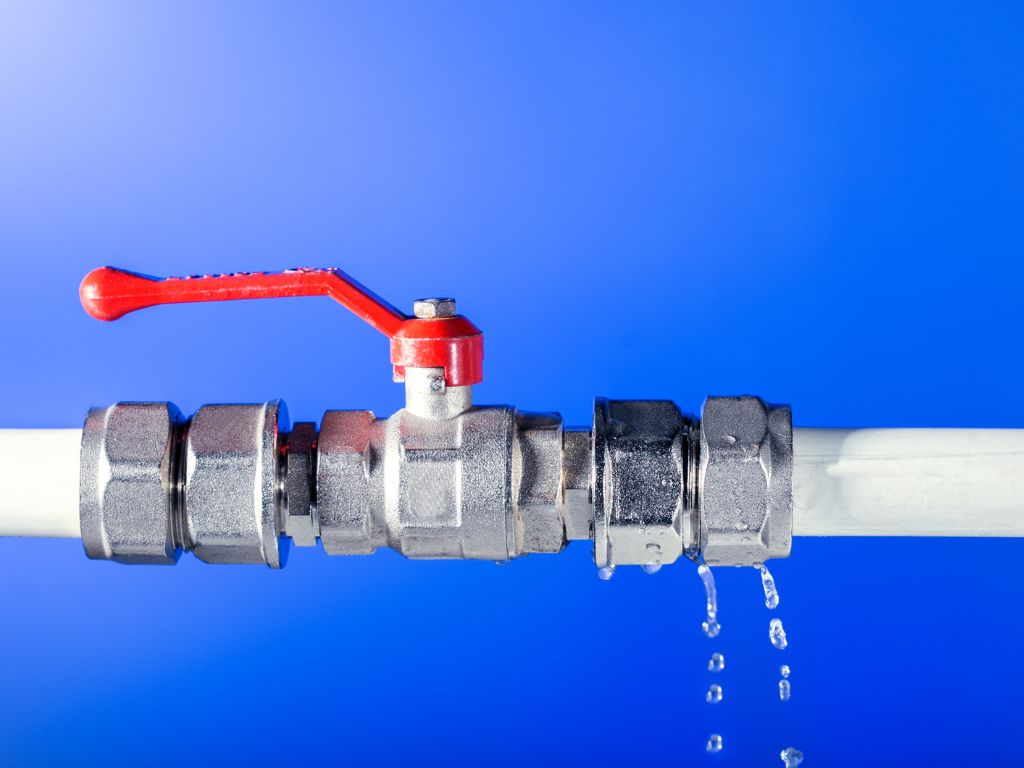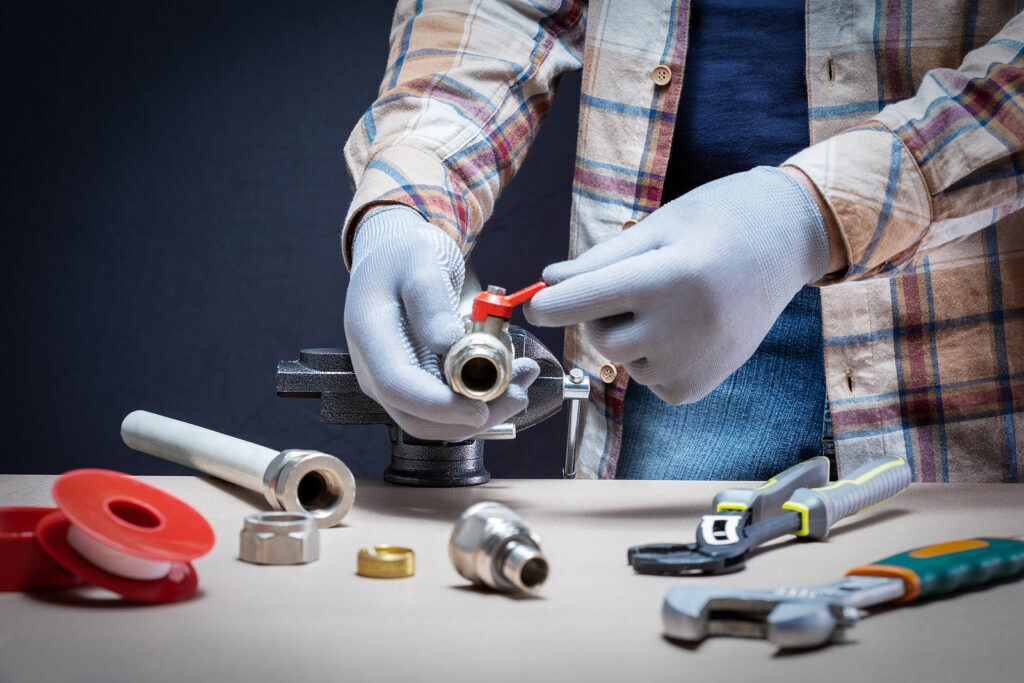Right here on the next paragraphs you will discover additional dependable information and facts on the subject of Plumbing Emergencies: Tips on What To Do Before.

Pipes emergency situations can strike at any moment, triggering tension and potential damages to your home. Whether it's a ruptured pipeline, a blocked drain, or a leaky faucet, recognizing just how to manage the scenario till an expert plumbing technician shows up can save you from further difficulties. This write-up supplies vital emergency plumbing pointers to assist you reduce damage and reclaim control throughout a plumbing crisis.
Switch off the Supply Of Water
The first step in any type of plumbing emergency situation is to turn off the supply of water. For local concerns, such as a leaking faucet or commode, shut off the valve near the component. In the case of a major leak or ruptured pipe, locate your home's major water shut-off valve and transform it off promptly. Knowing the area of these shutoffs beforehand can conserve important time during an emergency situation.
Address Small Leakages with Short-term Solutions
Little leakages can rapidly become considerable problems if left uncontrolled. Use these short-lived repairs till expert help shows up:
- Pipe Tape or Epoxy Putty: Apply waterproof tape or epoxy putty to briefly seal the leak.
- Rubber and Clamp Approach: Wrap an item of rubber or an old inner tube around the leakage and secure it with a pipe clamp or duct tape.
- Containers or Towels: Place containers under the leakage to include water and protect against damage to floor covering or furniture.
- While these repairs aren't irreversible, they can assist decrease water loss and damage.
Unclog Drains Pipes Securely
A blocked drainpipe can be an aggravating and untidy concern. Here's exactly how to tackle it: - Make use of a Bettor: For sinks or commodes, a plunger can usually dislodge small clogs. Ensure you use the right sort of plunger for the fixture.
- Warm Water and Dish Soap: For grease-related blockages, put a mixture of hot water and meal soap away to break up the grease.
- Avoid Chemical Drainpipe Cleansers: While alluring, chemical cleansers can cause more damage than excellent, especially to older pipes.
- If these techniques do not function, avoid utilizing extreme pressure, as it might aggravate the clog.
Manage Overflowing Toilets
An overflowing bathroom can trigger prompt chaos. Here's what you ought to do: - Quit the Water Circulation: Get rid of the container lid and press down on the flapper valve to stop water from going into the dish. Switch off the water supply to the toilet if required.
- Plunge Carefully: Utilize a commode bettor to get rid of the clog, but avoid aggressive plunging, which can cause splashing or further damage.
- Include the Spill: Use towels or a mop to clean up water rapidly to avoid flooring damage.
Turn off Your Water Heater
In specific emergencies, such as a burst pipe, it's smart to shut off your water heater. This avoids overheating or damage to the unit when water stops flowing. Turn off the power supply to the hot water heater (electrical or gas) and allow it cool off to avoid potential hazards.
Temporarily Stop a Ruptured Pipeline
A ruptured pipeline can cause considerable water damage in minutes. To mitigate the issue:
- Clamp or Cover the Pipeline: Make use of a pipeline clamp, rubber, or duct tape as a short-term seal.
- Divert Water Flow: When possible, draw away the water right into a container or container to restrict damage to surrounding areas.
- Maintain the Location Dry: Use towels or a wet/dry vacuum to remove standing water.
- Call a specialist plumbing technician instantly to deal with the problem completely.
Manage Frozen Pipeline Thoroughly
In colder environments, frozen pipes are an usual emergency situation. If you think a frozen pipeline: - Shut off the Water: Shut off the main water to avoid a burst pipeline.
- Defrost Slowly: Utilize a hairdryer, heating pad, or cozy towels to thaw the pipe gradually. Stay clear of open flames or extreme warmth, as these can damage the pipeline.
- Check for Leaks: Once the pipeline is thawed, look for fractures or leakages prior to turning the water back on.
Protect against Additional Damage
Taking fast action to decrease damage can save you money and time in the long run. Right here's how:
- Relocate Valuables: Eliminate furnishings, electronics, and other products from the damaged area.
- Usage Sandbags: For flooding scenarios, area sandbags around the area to reroute water.
- Turn off Electricity: If water has gotten to electrical outlets or devices, shut off the power to avoid shocks or fires.
. Have an Emergency Situation Plumbing Kit
Prepare a standard plumbing emergency situation kit to manage minor problems properly. Your kit needs to include:
- Flexible wrench
- Plumbing technician's tape
- Pipeline clamps
- Towels and dustcloths
- A plunger
- Epoxy putty
- Container.
- Having these devices available can make a substantial difference in your capability to take care of emergencies.
Know When to Call a Specialist.
While quick fixes can help briefly, certain pipes problems call for immediate expert focus. Call a plumbing if:. - A burst pipeline creates considerable flooding.
- Drains pipes or commodes stay blocked in spite of your initiatives.
- You see persistent leaks or water stress concerns.
- Your hot water heater is dripping or malfunctioning.
- Without delay speaking to a specialist ensures the issue is dealt with correctly and prevents further problems.
Final thought.
Plumbing emergencies can be overwhelming, however with the ideal understanding and devices, you can take care of the situation effectively up until assistance shows up. By switching off the water, addressing small leaks, and using short-term repairs, you can lessen damages and maintain your home safe. Bear in mind, these pointers are short-lived remedies; always consult a licensed plumber to handle the root cause of the problem. Preparation and quick reasoning are your ideal allies in any kind of plumbing emergency.
8 Helpful Tips for Managing Plumbing Emergencies at Home
If your plumbing system hasn’t failed once, wait for it because almost everyone has a story to tell. Sometimes, it could be simple emergencies such as a leaking pipe, a blocked cistern, or even a big burst pipe. In situations like this, you need to have some handy tips to save you some money and from possible damages.
Take care of minor issues early.
Sometimes, you could have avoided an emergency by taking proactive measures while it was still early. Some major plumbing emergencies can be a result of an ignored minor issue. We recommend that you have items like plumbing tapes and other related items. A plumbing tape can allow you to manage minor leaks before the plumber arrives.
Cut off the water supply.
This tip is essential in almost any type of leakage problem. For problems like minor leakages in the toilet or kitchen, turn off the supply that takes water to the affected pipes. If the leakage is a major pipe, you must shut off the supply valve to the entire building. This will help you avoid flooding your home and neighbors if you share a flat.
Know your plumbing system
Folks typically move into a new apartment without understanding the water supply around the building. This can prove disastrous if a water emergency arises and the plumber is far away. The previous tip will prove useless if you don’t practice this one. More importantly, know where your water shut-off valve is located – you’ll need that knowledge to prevent potential home floods.
Have some common handy tools
There are lots of plumbing emergencies that you can handle without hiring a plumber. That’s why you must keep some tools available always. Some tools that you can use to fix simple plumbing emergencies easily include plumbing tapes, screwdrivers, thread seal tapes, plungers, pliers, tape measures, and rubber gloves.
Insulate your pipes from cold
You’ll save yourself from many plumbing expenses if you protect your water pipes from the cold. This is because of the harmful effects that cold weather can have on your pipes. During winter, your pipes can burst from being overly expected to freezing temperatures. So, make sure insulators are there to keep the pipes working correctly.
Avoid practices that will clog your toilet.
Many people indulge in practices that can damage the plumbing system of the entire building. One of these is when they use their toilet to dispose-off garbage. They flush all kinds of things, such as paper towels, bandages, hairs, female sanitary products, etc., down the toilet. This will block your toilet in the long run, incurring unnecessary expenditures. Dump such waste in the trash instead.
Check your dials regularly.
Sometimes, there could be leakages in your home without noticing them in time. So, constantly monitor your water meter dial. If the dial is reading when there is nobody using water, this is an indicator that there is leaking. Check for leaks immediately. Call a plumber as soon as possible if you can’t find any.
https://www.constructionplacements.com/8-helpful-tips-for-managing-plumbing-emergencies-at-home/

Do you really like reading up on Plumbing Emergencies: Tips on What To Do Before? Give feedback down the page. We would be glad to find out your responses about this write up. We are looking forward to see you back again soon. Don't hesitate to take the time to distribute this blog if you liked it. Thank you for being here. Please come by our website back soon.
Call Today
Comments on “Crucial Emergency Plumbing Advice to Follow Until Help Arrives”